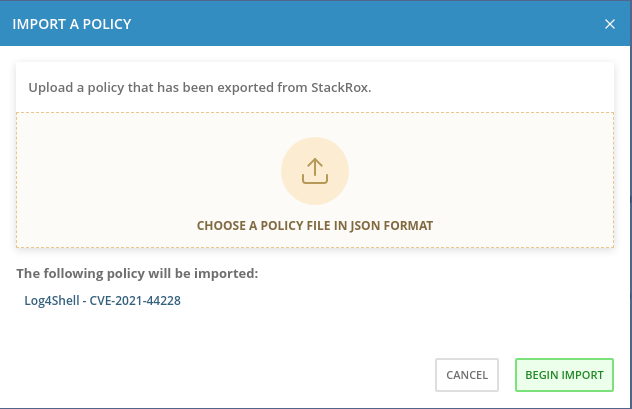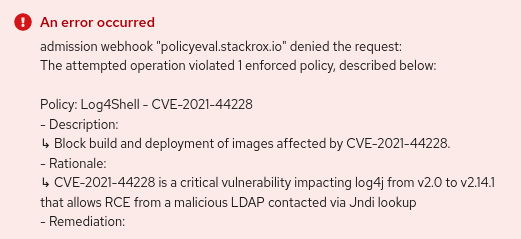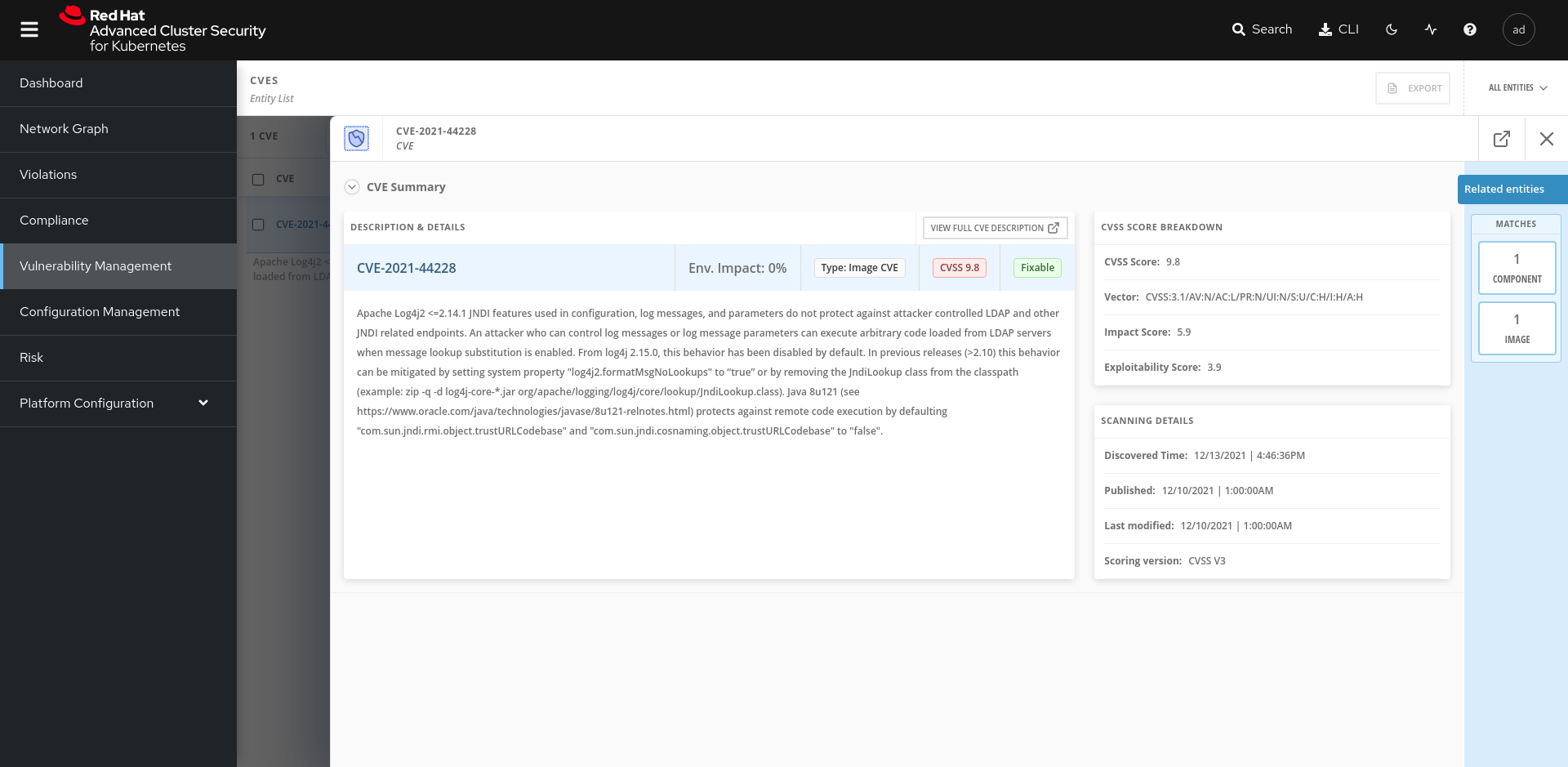A policy-based mitigation example for CVE-2021-44228 on Red Hat Advanced Cluster Security for Kubernetes. The policy works on both build and deployment stages.
Create a new policy on RHACS to detect the images and components affected by the CVE and trigger enforcement actions upon build and deploy.
To create the new policy import the policy configuration file acs-log4shell-policy.json. The policy
is alreay configured to enforce both build and deployment stages.
Create a vulnerable deployment using image quay.io/gbsalinetti/log4shell-vulnerable-app, based on
the log4shell-vulnerable-app example
by christophetd.
The application is a simple Spring Boot basic example that embeds log4j pacakge to print activity logs.
To create the deployment in the target cluster:
$ kubectl create -f log4shell-deployment.yaml
On RHACS this should produce an immediate action that prevents the deployment to be completed by scaling down the expected replicas to 0.
$ oc describe deployment log4shell -n log4shell-rogue-ns
[...omitted output...]
Events:
Type Reason Age From Message
---- ------ ---- ---- -------
Warning StackRox enforcement 5s stackrox/sensor Deployment violated StackRox policy "Log4Shell - CVE-2021-44228" and was scaled down
Normal ScalingReplicaSet 5s deployment-controller Scaled up replica set log4shell-f6d896fdd to 3
Normal ScalingReplicaSet 5s deployment-controller Scaled down replica set log4shell-f6d896fdd to 0
From the OpenShift Developer Console, a deployment creation will trigger the following output, enriched with rationale and remediation messages:
Looking at the RHACS console we can find detailed informations about the discovered vulnerability:
IMPORTANT: The policy only affects new deployments and builds. Pre-existing deployments are not eradicated by default and should be mitigated by upgrading the underlying image or applying a proper mitigation like disabling Jndi lookup.


